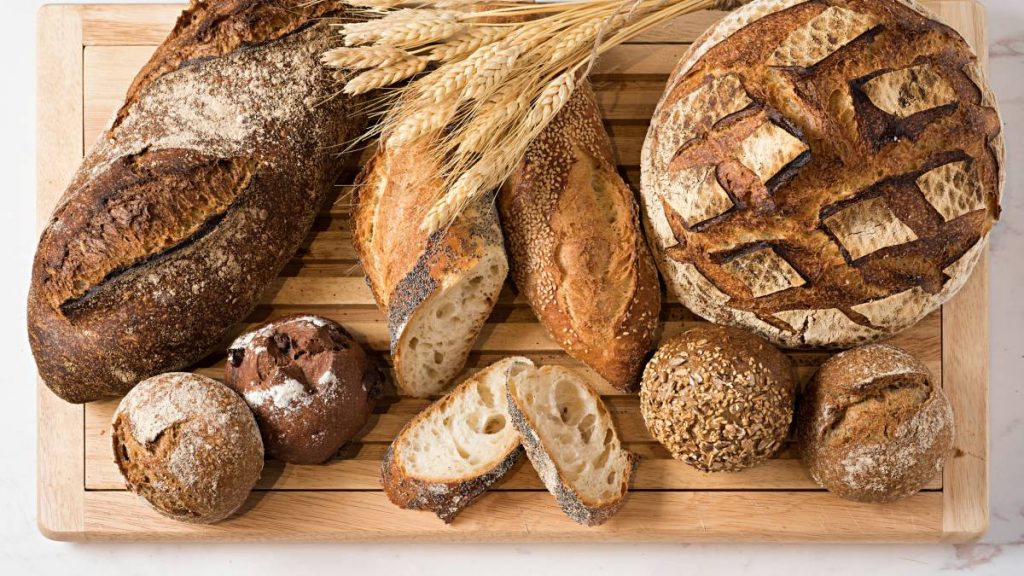Bread stands as a cornerstone of human sustenance, tracing its roots back thousands of years. Even before the cultivation of grains became widespread, evidence of bread consumption exists, with crumbs dating back around 14,000 years discovered in northeastern Jordan. Though initially likely an occasional treat, bread has steadily grown in significance throughout history. However, in recent decades, its prominence in the diet has waned, criticized for its perceived lack of healthiness and role in weight gain. Yet, experts argue that not all breads are created equal, and depending on the type, bread can play a different role in health. Artisan bakers advocate for slow-prepared, whole grain, sourdough bread, emphasizing its health benefits and digestibility. And despite common misconceptions, nutritionists caution against demonizing bread as a primary culprit for weight gain.
Bread Consumption Trends and Health Implications
According to data from the Ministry of Agriculture, Fisheries and Food, bread consumption in Spain has been declining for decades. In 1964, annual per capita consumption was around 92.5 kilograms, dropping to just over 47 kilograms in 2008. This decline, coupled with shifts towards processed, high-fat, high-sugar foods, has raised concerns about the nutritional quality of modern diets. Experts attribute this shift, in part, to dietary advice that demonizes bread as a culprit for weight gain. However, dismissing bread entirely overlooks its historical significance and nutritional value.
Debunking Bread Myths: Nutrition and Weight Gain
Carmen Vidal, a professor of Nutrition and Food Science at the University of Barcelona, challenges the perception that bread is high in calories. She emphasizes that the calories in bread are often overstated, especially when compared to the nutritional content of other foods. Additionally, efforts to reduce salt intake have led to lower salt content in bread, further debunking misconceptions about its health impacts.
Jordi Salas-Salvadó, a professor of Nutrition at Rovira i Virgili University, notes that studies linking bread consumption to obesity and weight gain often overlook the differences between traditional and modern bread-making methods. Traditional, artisanal bread made with sourdough and whole grains has a lower glycemic index compared to industrial, white bread. This distinction is crucial in understanding the potential health effects of bread consumption.
The Importance of Bread Quality
Daniel Jordà, a third-generation baker and owner of Panes Creativos in Barcelona, emphasizes the importance of bread quality. He suggests that the aroma of freshly baked bread and its texture are indicative of its quality. According to Jordà, sacrificing volume for quality is key to producing nutritious and flavorful bread. He advocates for slow fermentation methods and the use of whole grains to enhance both the taste and health benefits of bread.
Bread Varieties and Health Impacts
Not all breads are created equal, as highlighted by Rosa del Campo, a microbiologist at Ramón y Cajal Hospital in Madrid. Industrial breads often contain emulsifiers that can disrupt the gut microbiome, whereas traditional, slow-fermented breads may have prebiotic effects, promoting gut health. Research comparing the effects of industrial and artisanal breads on gut microbiota composition underscores the importance of bread-making methods in preserving gut health.
Bread-Making Processes and Nutritional Content
Jorge Pastor, an expert in bread innovation and research, draws attention to the industrialization of bread-making processes. He distinguishes between “fast” bread made with commercial yeast and “slow” bread made with sourdough starter and a longer fermentation process. Pastor warns against the overuse of high-gluten flours in fast bread production, highlighting the potential digestive issues associated with gluten consumption.
Bread’s Role in Human Nutrition and History
Despite changing consumption patterns, bread remains a fundamental food in human diets. Its historical significance and nutritional value cannot be overstated. Traditional bread-making methods, using natural fermentation and whole grains, offer health benefits that industrial breads may lack. Understanding the nuances of bread varieties and production methods is essential in promoting a healthy diet and preserving cultural culinary traditions.
Conclusion
In conclusion, bread has been a staple food throughout human history, offering sustenance and nourishment to diverse cultures around the world. Despite shifting consumption patterns and misconceptions about its health impacts, bread remains an integral part of many diets. By prioritizing quality ingredients and traditional bread-making methods, individuals can enjoy the nutritional benefits of bread while preserving its cultural and culinary significance. Embracing a diverse range of bread varieties and promoting sustainable bread production practices can contribute to a healthier and more vibrant food system for future generations.

